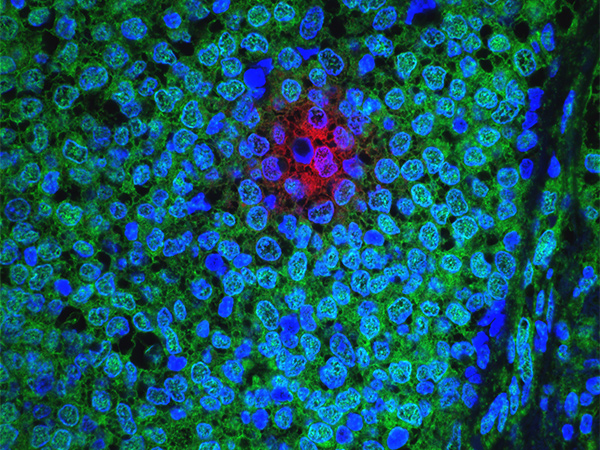A New Targeted Treatment for HER2-positive Breast Cancer
The FDA approved a new treatment for adults with advanced breast cancer that has developed resistance to other targeted therapies.

A new treatment has been approved by the U.S. Food and Drug Administration (FDA) for certain patients with HER2-positive breast cancer that has developed resistance to other targeted therapies.
The FDA approved fam-trastuzumab deruxtecan-nxki (Enhertu) on December 20, 2019. The molecularly targeted therapeutic was approved for treating adult patients with unresectable or metastatic HER2-positive breast cancer that has progressed despite treatment with two or more other HER2-targeted treatment regimens.
More than 265,000 women a year in the United States are newly diagnosed with breast cancer, according to the National Cancer Institute. About 15 percent of those patients are diagnosed with cancer with high levels of HER2, a protein on the surface of cells.
Fam-trastuzumab deruxtecan-nxki is a type of therapeutic known as an antibody-drug conjugate. It comprises a cytotoxic agent, deruxtecan, attached to the HER2-targeted antibody trastuzumab by a linker. When the antibody attaches to HER2 on the surface of breast cancer cells, the antibody-drug conjugate is internalized by the cells. This leads to deruxtecan being released from the linker and antibody. Once free, the deruxtecan is toxic to the breast cancer cells, which ultimately die.
Shortly before the FDA’s approval of the new treatment, the data underpinning the decision was presented at the San Antonio Breast Cancer Symposium (SABCS) hosted by UT Health San Antonio, the American Association for Cancer Research (AACR), and Baylor College of Medicine.
In an AACR press release, Ian Krop, MD, PhD, associate chief of the Division of Breast Oncology at Dana-Farber Cancer Institute, shared the data and explained the need for new HER2-targeted therapeutics.
“Although HER-2 directed therapies such as trastuzumab (Herceptin), pertuzumab (Perjeta), and T-DM1 (Kadcyla) have led to improved outcomes for patients with HER2-positive advanced breast cancer,” he explained, “resistance to these drugs develops almost inevitably and we do not have a clear standard of care for these patients once resistance occurs.”
Learn more about the approval, including information about potentially serious side effects on Cancer Research Catalyst, the official blog of the American Association for Cancer Research.
